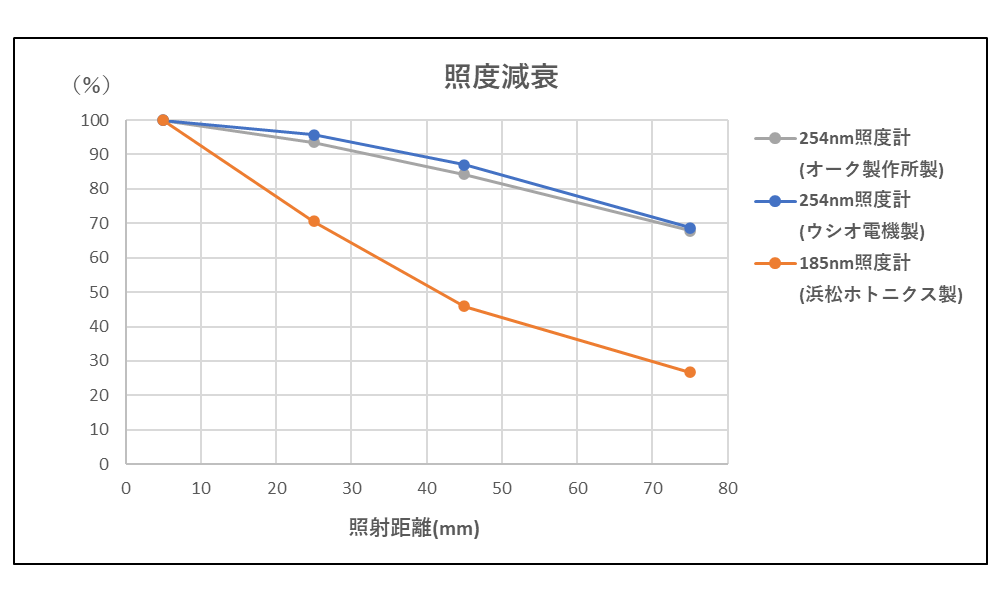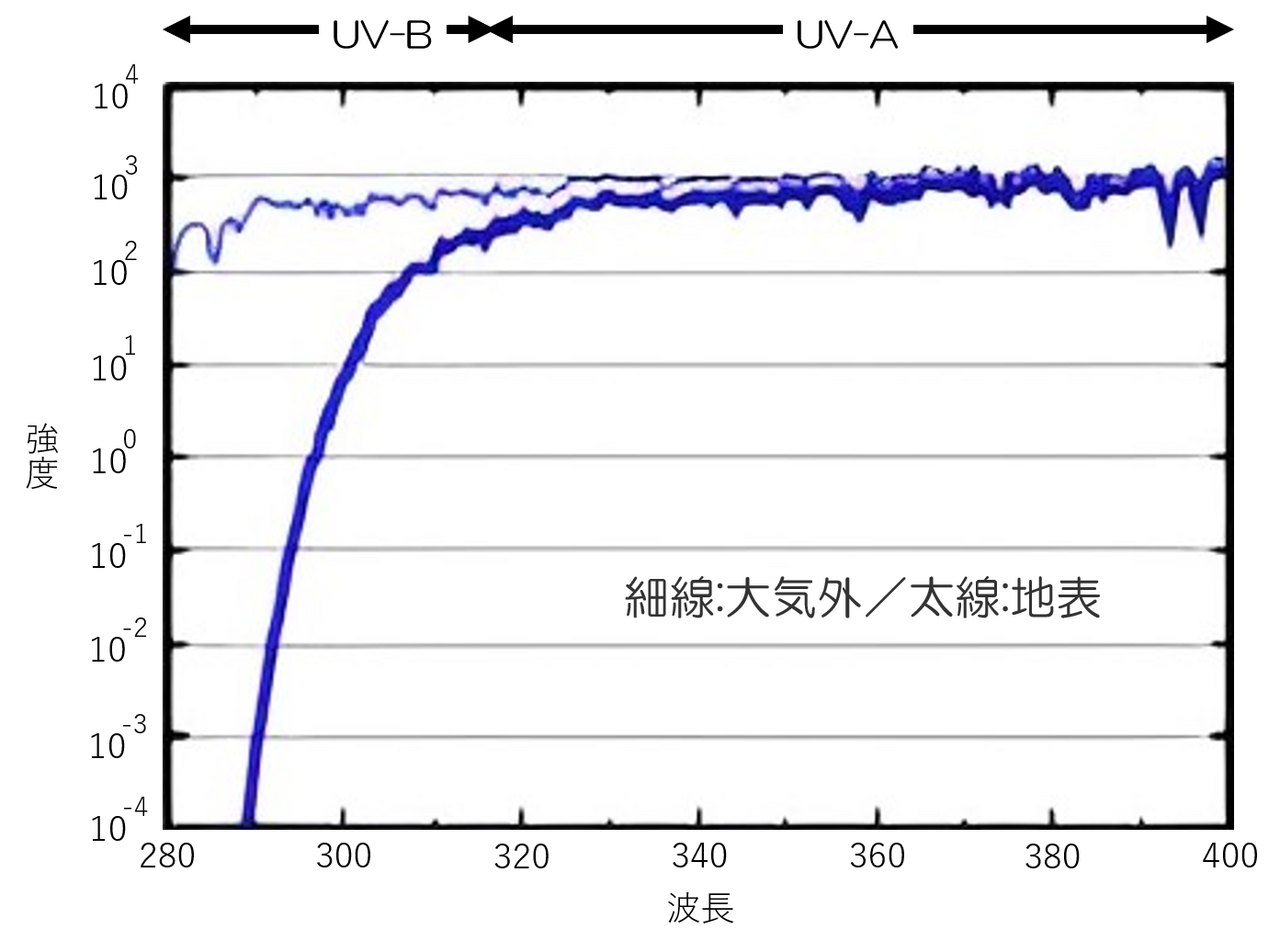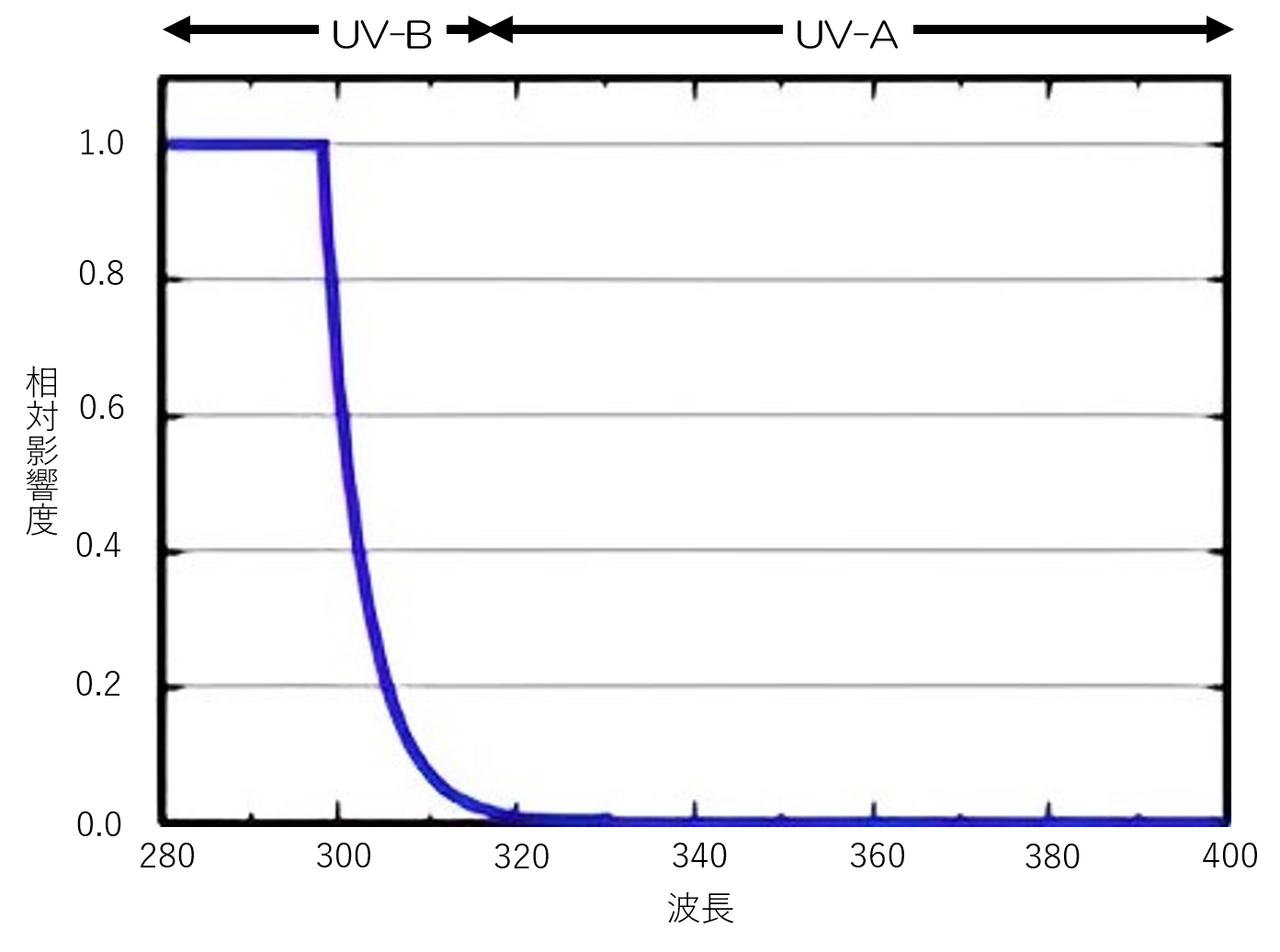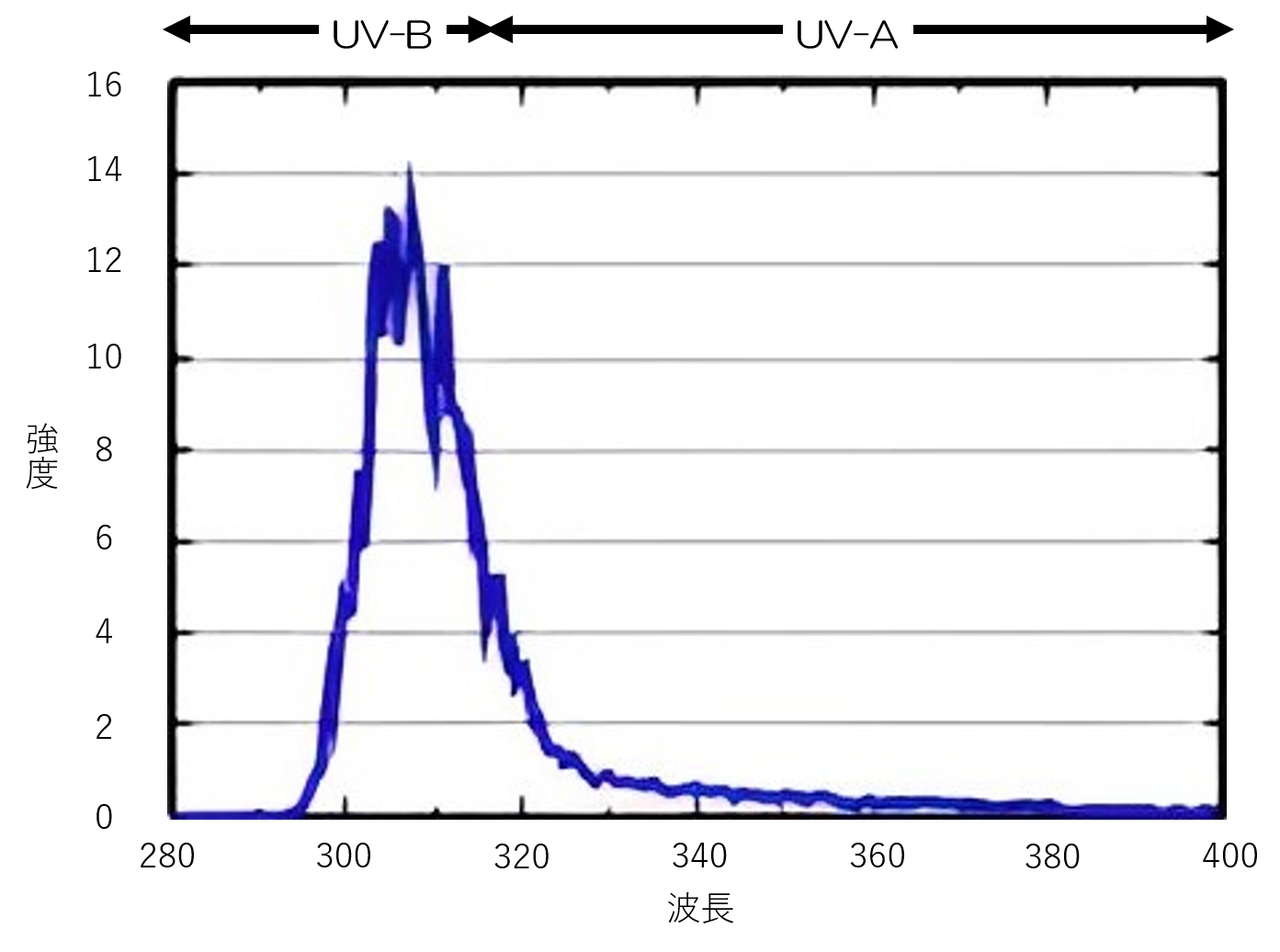Ultraviolet rays are light with a wavelength shorter than that of visible light, which can be seen by the eye.
Generally speaking, the shorter the wavelength of ultraviolet rays, the greater the attenuation over distance.
When we look at the intensity of the UV that reaches the earth from the sun, we find that there is no significant difference in intensity at any wavelength before entering the atmosphere. However, by the time it reaches the ground, the shorter the wavelength, the lower the intensity. This is because the shorter wavelengths are more affected by scattering in the atmosphere and absorption by ozone in the stratosphere.
The 184.9 nm and 253.7 nm wavelengths emitted from the low-pressure mercury vapor lamps used in our equipment are not shown, but even at 184.9 nm and 253.7 nm wavelengths, the shorter one, 184.9 nm, is attenuated to a greater extent.
Figure 1. Conceptual diagram of UV index
Source: Taken from the website of the Japan Meteorological Agency
We measured the distance and illuminance at each wavelength using a UV irradiation equipment ASM1101N and illuminance meters from various companies to see how much attenuation actually occurs at each wavelength, and summarized the distance and attenuation rates.
Measuring conditions
| UV irradiation equipment | ASM1101N |
| 254nm Illuminometer(Made by ORC MANUFACTURING CO., LTD.) | Illuminance meter body type:UV-M03A UV Sensor Type:UV-SN25 |
| 254nm Illuminometer(Made by Ushio Inc.) | Illuminance meter body type:UIT-250 UV Sensor Type:UVD-S254 |
| 185nm Illuminometer(Made by Hamamatsu Photonics K.K.) | Illuminance meter body type:C9536 UV Sensor Type:H9535-185 |
| Irradiation measurement conditions between lamp and sensor | 5mm、25mm、45mm、75mm |
| Illuminance Calculation Methods | Measure 5 points on the stage for each distance and obtain their average |
| Measurement environment | Room temperature:22.6℃、Humidity10% |

The graph shows each illuminance at 5 mm from the lamp as 100%, with the 253.7 nm wavelength (blue and gray lines) being about 70% of the illuminance at a distance of 70 mm.
In contrast, the 184.9 nm (orange line) has only about 30% illumination at a distance of 70 mm, indicating that it is more heavily attenuated.
UV cleaning requires the breaking of bonds with high energy, such as double bonds between carbons. To achieve this, it is necessary to irradiate the material at a short wavelength with high energy, i.e., 184.9 nm, at a distance close enough to the material.





